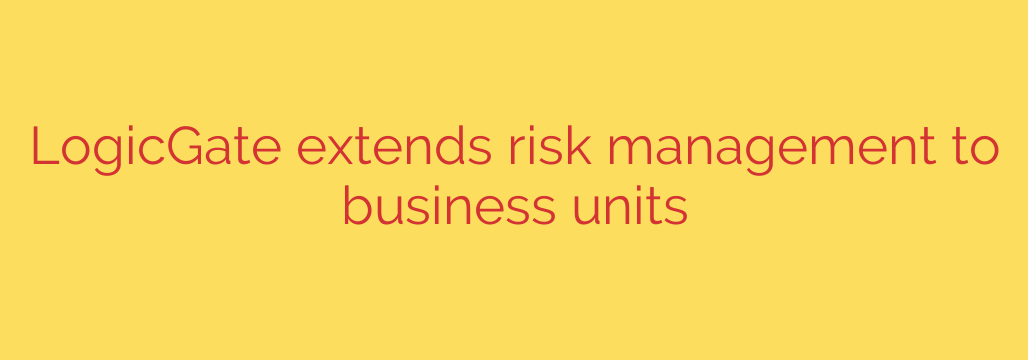
In today’s increasingly complex business landscape, managing risk effectively is paramount. Risks are no longer confined to isolated incidents or specific departments; they permeate every facet of an organization, from information technology and finance to operational processes and supply chain logistics.
Traditionally, enterprise risk management has often been a centralized function, primarily handled by dedicated Governance, Risk, and Compliance (GRC) teams. While essential for maintaining a holistic view and ensuring overall compliance, this centralized approach can sometimes create a disconnect with the specific, nuanced risks that live within individual business units. Teams on the ground often have the most immediate insight into potential issues but may lack the tools or direct integration to effectively manage and communicate those risks back to the central authority.
Recognizing this challenge, LogicGate, a leading provider of risk and compliance solutions, is strategically extending the reach of its powerful Risk Cloud platform. The goal is to empower teams outside the core GRC function – such as those in IT, finance, operations, human resources, and more – to actively participate in and manage risks relevant to their specific areas.
By putting tailored risk management capabilities directly into the hands of business units, organizations can unlock significant benefits. Teams closest to the operational realities can proactively identify, assess, and respond to risks more quickly and accurately. This fosters a stronger culture of risk awareness and ownership throughout the organization.
For central GRC teams, this expansion doesn’t dilute their role; instead, it enhances it. They gain unprecedented visibility into risks across the entire enterprise, consolidating disparate data points into a single, unified platform. This allows for better aggregation, analysis, and strategic prioritization of risks based on comprehensive data.
This distributed approach also dramatically improves collaboration. It bridges the gap between departmental knowledge and centralized oversight, facilitating smoother communication and more coordinated risk response efforts. Processes become more streamlined, reducing manual effort and increasing efficiency.
Ultimately, by enabling risk management at the business units level, organizations build a more resilient and agile posture. They can react faster to emerging threats, make more informed decisions based on real-time data, and ensure that risk considerations are embedded into daily operations, not just addressed periodically by a single team. LogicGate’s expansion of the Risk Cloud platform represents a significant step towards creating a truly integrated and proactive risk-aware enterprise.
Source: https://www.helpnetsecurity.com/2025/05/28/logicgate-risk-cloud/








